Did you know that the virus that causes COVID-19 can spread from humans to animals, including our beloved pets? Yes, it’s true! As responsible pet owners, it’s important for us to understand the risks and take necessary precautions to keep both our furry friends and ourselves safe during these challenging times.
While the risk of pets spreading COVID-19 to people is low, it’s crucial to be aware of the potential for transmission and the steps we can take to minimize it. In this article, we will explore the relationship between dogs and COVID-19, highlighting key information about transmission, symptoms, treatment, and prevention measures.
Key Takeaways:
- Dogs can become infected with the virus that causes COVID-19 through close contact with infected humans.
- The risk of pets spreading COVID-19 to people is low, but precautions should still be taken.
- Most dogs infected with COVID-19 experience mild illness and fully recover.
- There is no specific treatment for COVID-19 in dogs, and supportive care is provided based on symptoms.
- Routine COVID-19 testing for dogs is not recommended unless there are symptoms or a specific need for testing.
The Risk of COVID-19 Spreading Between Pets and People
The virus that causes COVID-19 can spread from people to animals, including cats and dogs, mostly after close contact with infected individuals. While pets can become infected with the virus, the risk of pets spreading COVID-19 to people is low. It is important to avoid putting masks on pets and to refrain from using chemical disinfectants on their fur or skin. Pet owners who are sick with COVID-19 should avoid close contact with their pets, including petting, snuggling, kissing, sharing food, and sleeping in the same bed.
Although the risk of COVID transmission between pets and people is minimal, it is essential to take precautions to ensure the safety of both humans and animals. Here are some important guidelines to follow:
- Avoid close contact: If you are sick with COVID-19, it is best to limit contact with your pets. This includes avoiding petting, snuggling, and kissing them. It is also important to not share food or sleeping spaces with your pets until you have recovered.
- Practice good hygiene: Wash your hands thoroughly before and after interacting with your pets. This can help prevent the spread of the virus between humans and animals.
- Avoid putting masks on pets: While masks are effective for humans, they are not suitable for pets. Masks can cause respiratory distress and discomfort for animals.
- Avoid using chemical disinfectants on pets: Pets groom themselves by licking their fur, and using chemical disinfectants can be harmful to them. Stick to regular grooming practices and avoid using any products not specifically recommended for pets.
By following these guidelines, pet owners can help minimize the risk of COVID transmission between pets and people, ensuring the health and well-being of both.
“While the risk of pets spreading COVID-19 to people is minimal, it is important to take precautions to ensure the safety of both humans and animals.”
Next, let’s take a closer look at the symptoms of COVID-19 in pets.
| Section | Covid Transmission in Dogs | Covid and Pets | Pets and Covid Risks |
|---|---|---|---|
| Section 1 | ✓ | ✓ | ✓ |
| Section 2 | ✓ | ✓ | ✓ |
| Section 3 | – | ✓ | – |
Symptoms of COVID-19 in Pets
Pets infected with the virus that causes COVID-19 may or may not show symptoms. Most pets that do show symptoms only experience mild illness and fully recover.
Common symptoms in pets include:
- Fever
- Coughing
- Difficulty breathing
- Lethargy
- Sneezing
- Runny nose
- Eye discharge
- Vomiting
- Diarrhea
If a pet shows symptoms and there is suspicion of COVID-19, it is important to contact a veterinarian for guidance.
Expert Advice:
“If your pet exhibits any of these symptoms and you suspect COVID-19, it’s crucial to consult with a veterinarian. They can provide the appropriate guidance and care to ensure the well-being of your pet.” – Dr. Emily Johnson, Chief Veterinarian at Healthy Pets Clinic
To help you better understand the symptoms of COVID-19 in pets, here is a table highlighting the common signs:
| Signs | Description |
|---|---|
| Fever | Elevated body temperature above the normal range for the species |
| Coughing | Frequent or persistent cough |
| Difficulty breathing | Labored or rapid breathing, shortness of breath |
| Lethargy | Lack of energy, decreased activity levels |
| Sneezing | Repeated expelling of air through the nose |
| Runny nose | Excessive nasal discharge |
| Eye discharge | Discharge from the eyes, such as tears or pus |
| Vomiting | Forceful expulsion of stomach contents through the mouth |
| Diarrhea | Watery or loose stools |
What to Do if Your Pet Tests Positive
If a pet tests positive for COVID-19, it is important to take immediate action to protect their health and prevent the spread of the virus. Here are the steps to follow:
- Isolate your pet: The veterinarian may recommend home isolation for your pet. This means keeping them separate from other animals and limiting their contact with people in the household. It is important to follow all instructions given by the veterinarian.
- Care for your pet at home: Provide your pet with all necessary care, including regular feeding, exercise, and monitoring of their symptoms. Make sure to follow any medication or treatment plans prescribed by the veterinarian.
- Monitor symptoms: Keep a close eye on your pet’s symptoms and document any changes you observe. Common symptoms of COVID-19 in pets include fever, coughing, difficulty breathing, lethargy, and gastrointestinal issues.
- Duration of home isolation: Home isolation should continue until your pet has been symptom-free for at least 72 hours without medical care and at least 14 days have passed since their last positive test, or all follow-up tests for current infection are negative.
During the home isolation period, it is crucial to minimize contact between your pet and other household members to prevent potential transmission of the virus. Regularly clean and disinfect any areas your pet comes into contact with, such as their bedding, toys, and food bowls.
If you have any concerns or questions about caring for your pet during this time, don’t hesitate to reach out to your veterinarian for guidance and support.
Recommended Actions if Your Pet Tests Positive for COVID-19
| Action | Description |
|---|---|
| Isolate your pet | Follow the veterinarian’s recommendation and keep your pet separate from other animals and people in the household. |
| Care for your pet at home | Provide your pet with necessary care, including feeding, exercise, and medication as prescribed by the veterinarian. |
| Monitor symptoms | Keep a close eye on your pet’s symptoms and document any changes observed. Common symptoms include fever, coughing, difficulty breathing, lethargy, and gastrointestinal issues. |
| Duration of home isolation | Continue home isolation until your pet has been symptom-free for at least 72 hours without medical care and at least 14 days have passed since their last positive test, or follow-up tests are negative. |
COVID-19 in Other Animals
While much attention has been given to the transmission of COVID-19 in cats and dogs, it is important to note that the virus can also affect other animals. Cases of SARS-CoV-2 infection have been reported in farmed mink, captive big cats, non-human primates, and white-tailed deer.
Animal-to-human transmission has been documented in certain cases, but it is essential to understand that the overall risk of animals spreading COVID-19 to people remains low. However, precautions should still be taken to prevent potential transmission.
Unique Cases of SARS-CoV-2 Infection in Animals:
- Farmed Mink: Mink farms have seen outbreaks of COVID-19, with the virus spreading from humans to mink and vice versa. This underscores the importance of biosecurity measures in animal farming operations.
- Captive Big Cats: Tigers and lions in captivity have been infected with SARS-CoV-2, likely due to exposure to infected zookeepers. These cases highlight the need for protective measures in settings where humans and animals come into close contact.
- Non-Human Primates: Some non-human primates, such as gorillas, have tested positive for COVID-19. As these animals share genetic similarities with humans, it is crucial to protect them from potential exposure.
- White-Tailed Deer: Studies have indicated that white-tailed deer can become infected with the SARS-CoV-2 virus. Although the significance of this in terms of transmission to humans is currently unknown, it highlights the need for continued research and vigilance.
To minimize the risk of transmission from these animals to humans, it is important to follow appropriate safety measures and guidelines, especially in settings where close contact between humans and animals is common.
While the risk of animal-to-human transmission of COVID-19 is low, it is crucial for us to understand and monitor the potential spread of the virus among various animal species. This knowledge can help inform public health strategies and protect both human and animal populations.
Recommendations for Pet Owners
During the COVID-19 pandemic, it is crucial for pet owners to follow specific guidelines to ensure the health and safety of their furry companions. The American Veterinary Medical Association (AVMA) provides valuable tips for responsible pet care:
- Practice good hygiene: Wash your hands thoroughly with soap and water for at least 20 seconds before and after interacting with animals. This simple routine can help prevent the transmission of COVID-19.
- Avoid unnecessary exposure: Limit your pet’s interactions with people or animals outside your household. Keeping your cats indoors and walking dogs on a leash while maintaining social distancing are essential precautions to minimize the risk.
- Restrict contact if sick: If you are sick with COVID-19 or exhibiting symptoms, it is best to restrict contact with your pets. If possible, have someone else in the household care for them until you recover.
If you find it challenging to segregate from your pets, consider these additional recommendations:
- Wear a mask and maintain distance: If you must be in close contact with your pets while sick, wear a mask and maintain a distance of at least six feet. This precaution will help reduce the potential spread of the virus.
- Seek veterinary care when needed: If your pet shows any signs of illness or exhibits COVID-19 symptoms, contact your veterinarian for guidance. They can provide appropriate advice and ensure your pet receives the necessary care.
Remember, by following these recommendations, you can protect not only yourself but also your beloved pets during these challenging times.
| Recommendations for Pet Owners | |
|---|---|
| Practice good hygiene | Wash hands before and after interacting with animals |
| Avoid unnecessary exposure | Limit interactions with people or animals outside the household |
| Restrict contact if sick | Have someone else care for pets if you are sick with COVID-19 |
| Wear a mask and maintain distance | If close contact is necessary, wear a mask and maintain distance |
| Seek veterinary care when needed | Contact a veterinarian if your pet shows signs of illness |
Following these recommendations will help ensure the well-being of both you and your furry friends.
Can Humans Get COVID from Dogs?
Although it is possible for COVID-19 to be transmitted from humans to dogs, the risk of humans getting COVID-19 from dogs is very low. Close contact with an infected dog is necessary for transmission to occur, and proper precautions can minimize this risk. Human-to-dog transmission is considered to be rare, but it is still recommended to avoid close contact with pets if a person is infected with COVID-19.
Protecting Dogs from COVID-19
To protect our furry friends from COVID-19, it is crucial to take certain precautions. By preventing exposure to infected individuals, we can minimize the risk to our dogs. One of the key measures is to avoid taking them to crowded places where close contact with potentially infected individuals is more likely.
Additionally, practicing good hygiene is essential. We should remember to wash our hands thoroughly before and after interacting with our dogs. This simple act helps reduce the chances of transmitting the virus to our pets or vice versa.
Regular veterinary care and vaccinations are also vital for protecting our dogs from not only COVID-19 but also other illnesses. By keeping up with their vaccinations and ensuring they receive regular check-ups, we can maintain their overall health and strengthen their immune systems. A healthy dog is better equipped to fight off infections and diseases.
Remember, our dogs rely on us to keep them safe and healthy. Let’s prioritize their well-being by following these preventive measures and providing them with the care they need.
Quick Tips to Protect Your Dog from COVID-19:
- Avoid taking your dog to crowded places
- Practice good hygiene, including washing hands before and after interacting with your dog
- Keep up with regular veterinary care and vaccinations
Symptoms and Treatment for COVID-19 in Dogs
Dogs infected with COVID-19 may exhibit various symptoms related to respiratory distress and general discomfort. Common signs include:
- Coughing
- Sneezing
- Nasal discharge
- Lethargy
- Mild respiratory distress
It is important to note that while some infected dogs may show symptoms, others may be asymptomatic carriers of the virus. It is crucial to monitor your dog’s health for any signs of illness during these uncertain times.
When it comes to the treatment of COVID-19 in dogs, there is currently no specific antiviral therapy available. However, supportive care is typically provided to manage symptoms and promote recovery. This may include:
- Ensuring proper rest and relaxation for the dog
- Providing a comfortable and stress-free environment
- Monitoring temperature and maintaining hydration
- Administering any prescribed medications or treatments
- Recommending good nutrition to support the immune system
If your dog shows symptoms of COVID-19 or if you have concerns about their health, it is essential to consult a veterinarian for proper guidance and care. They will be able to assess your dog’s condition, provide necessary treatments, and offer advice on how to manage the illness effectively.
Quote:
“Keeping a close eye on your dog’s health and seeking veterinary attention when necessary is crucial during the COVID-19 pandemic. Early detection and supportive care can significantly improve the chances of a full recovery.”
Here is a visual representation of the symptoms and treatment for COVID-19 in dogs:
| COVID-19 Symptoms in Dogs | Treatment for COVID-19 in Dogs |
|---|---|
| Coughing | Rest and relaxation |
| Sneezing | Providing a stress-free environment |
| Nasal discharge | Monitoring temperature and hydration |
| Lethargy | Administering prescribed medications |
| Mild respiratory distress | Emphasizing good nutrition |
Canine COVID Testing and Vaccination
Routine testing for COVID-19 in dogs is not recommended unless there are symptoms or a specific need for testing. The United States Department of Agriculture does not recommend routine testing for dogs that have been in contact with COVID-19 positive individuals.
Currently, there is no COVID-19 vaccine available for dogs. Canine coronavirus vaccines do not provide protection against the SARS-CoV-2 virus that causes COVID-19.
While testing and vaccination may not be necessary for dogs in relation to COVID-19, it is important to prioritize their overall health and well-being. Regular veterinary check-ups, proper nutrition, and preventive care, including vaccinations for other common canine diseases, are essential in keeping our furry friends healthy.
Veterinary Recommendations for Canine Health
“Regular veterinary care and vaccinations are crucial for maintaining the health of our canine companions. It is recommended to follow the vaccination schedule advised by your veterinarian to protect dogs from various preventable diseases.”
To ensure your dog remains healthy and protected, consider the following veterinary recommendations:
- Schedule regular check-ups with your veterinarian to monitor your dog’s overall health and address any concerns.
- Follow the vaccination schedule recommended by your veterinarian for diseases such as rabies, distemper, parvovirus, and kennel cough.
- Keep your dog’s vaccinations up to date to provide adequate protection against common canine diseases.
- Discuss preventive measures, such as flea and tick control, heartworm prevention, and routine deworming, with your veterinarian.
- Maintain a balanced diet and appropriate exercise regimen to promote optimal health and wellbeing.
- Practice good hygiene, including regular grooming, dental care, and cleaning of your dog’s living environment.
By following these recommendations, you can help ensure the overall health and longevity of your beloved canine companion.
| Vaccinations | Importance |
|---|---|
| Rabies | Protection against a fatal viral disease that can be transmitted to humans. |
| Distemper | Prevention of a highly contagious and potentially fatal viral disease that affects multiple organ systems. |
| Parvovirus | Prevention of a highly contagious and potentially deadly viral disease that affects the gastrointestinal tract. |
| Kennel Cough | Reduction of the risk of infection with respiratory pathogens that cause a persistent cough. |
Remember, while we navigate the challenges of COVID-19, it is essential to prioritize the overall well-being and health of our furry companions. By following veterinary recommendations, providing proper care, and prioritizing regular check-ups and vaccinations, we can ensure the happiness and longevity of our beloved dogs.
Conclusion
In conclusion, while it is possible for dogs to contract COVID-19, the risk is relatively low, and most cases in dogs result in mild illness and full recovery. The primary mode of transmission is through close contact with infected humans. Therefore, it is important for pet owners to follow recommended safety measures to minimize the risk of infection for both themselves and their furry friends.
During the COVID-19 pandemic, it is crucial for pet owners to practice good hygiene, including regular handwashing before and after interacting with their pets. It is also advised to avoid close contact if they are infected with COVID-19 and to seek veterinary care if their pet shows any symptoms of the illness.
Regular veterinary care is vital for the overall well-being of dogs, particularly during this pandemic. By staying updated with vaccinations and ensuring routine check-ups, pet owners can help protect their furry companions from various illnesses, including COVID-19. By taking these precautions and following the guidelines, we can all do our part in keeping our dogs safe and healthy.
FAQ
Can dogs get COVID-19?
Yes, dogs can get COVID-19. The virus that causes COVID-19 can spread from humans to animals, including pets like cats and dogs.
Can dogs spread COVID-19 to humans?
While pets can become infected with the virus, the risk of pets spreading COVID-19 to people is low. Close contact with an infected dog is necessary for transmission to occur.
What are the symptoms of COVID-19 in pets?
Common symptoms in pets include fever, coughing, difficulty breathing, lethargy, sneezing, runny nose, eye discharge, vomiting, and diarrhea.
What should I do if my pet tests positive for COVID-19?
If your pet tests positive for COVID-19, the veterinarian may recommend home isolation. It is important to follow all instructions and monitor your pet’s symptoms.
Can COVID-19 spread to other animals?
Yes, COVID-19 has been detected in animals besides cats and dogs, including farmed mink, captive big cats, non-human primates, and white-tailed deer.
What recommendations are there for pet owners during the COVID-19 pandemic?
The American Veterinary Medical Association recommends practicing good hygiene, avoiding close contact with pets if you are infected, and seeking veterinary care if your pet shows symptoms.
Can humans get COVID-19 from dogs?
The risk of humans getting COVID-19 from dogs is very low. Close contact with an infected dog is necessary for transmission to occur.
How can I protect my dog from COVID-19?
To protect your dog from COVID-19, avoid exposing them to infected individuals, practice good hygiene, and follow regular veterinary care and vaccination protocols.
What are the symptoms and treatment options for COVID-19 in dogs?
Dogs infected with COVID-19 may show symptoms such as coughing, sneezing, nasal discharge, lethargy, and mild respiratory distress. There is no specific treatment for COVID-19 in dogs, and supportive care is provided.
Should my dog be tested for COVID-19?
Routine testing for COVID-19 in dogs is not recommended unless there are symptoms or a specific need for testing. Canine coronavirus vaccines do not provide protection against the SARS-CoV-2 virus that causes COVID-19.
Any final thoughts on dogs and COVID-19?
While it is possible for dogs to get COVID-19, the risk is relatively low, and most cases result in mild illness and full recovery. Following recommended safety measures and seeking veterinary care when needed is crucial for the well-being of dogs during the pandemic.



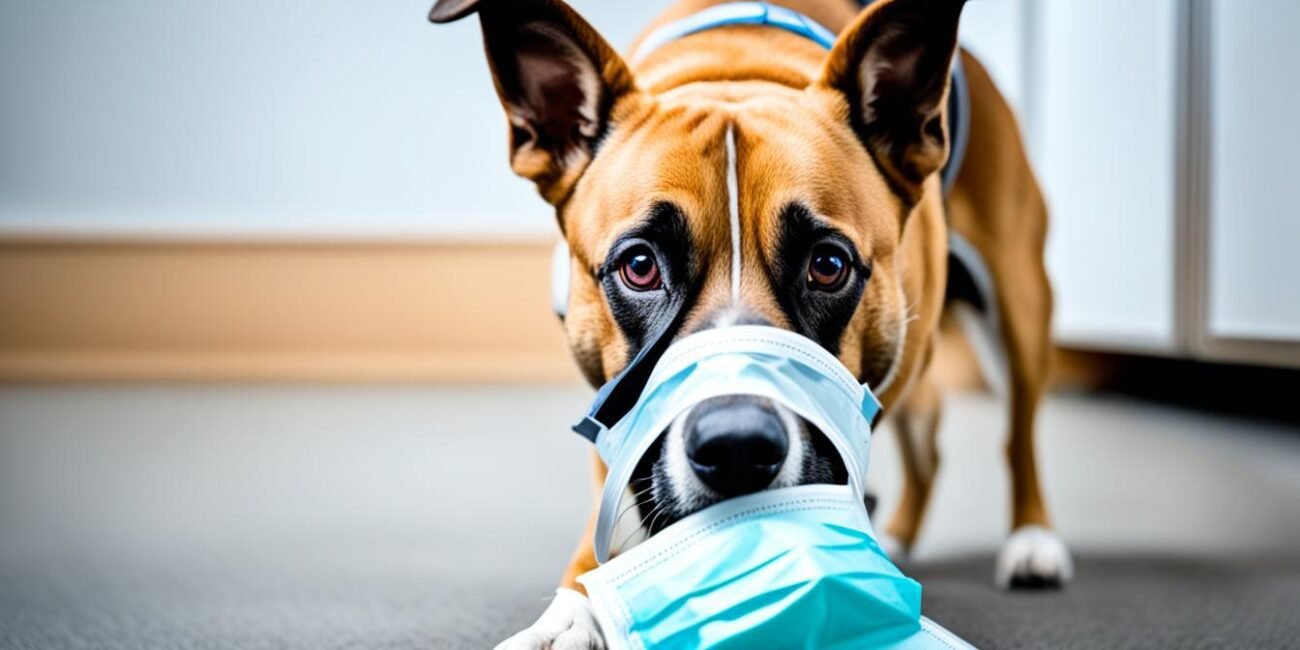


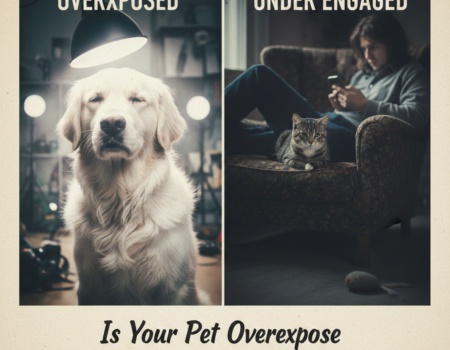
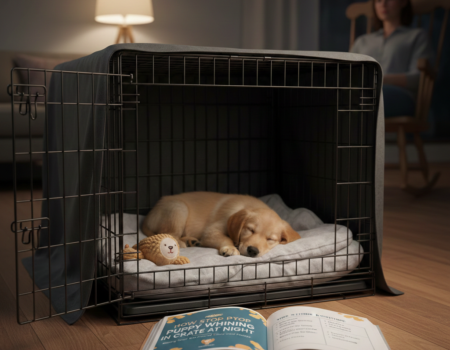
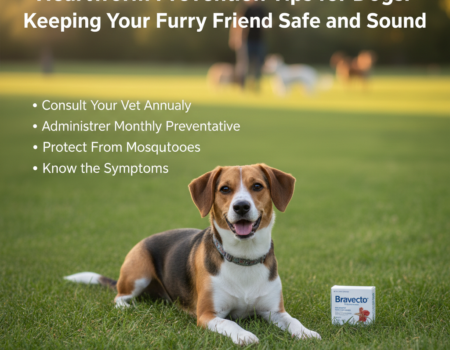
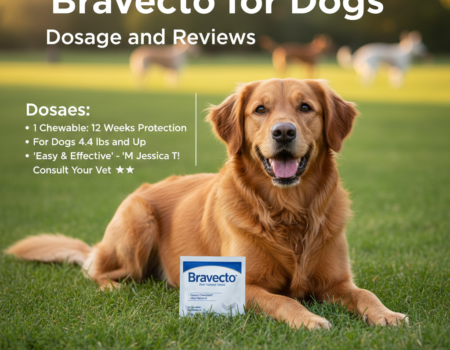
No Comment! Be the first one.